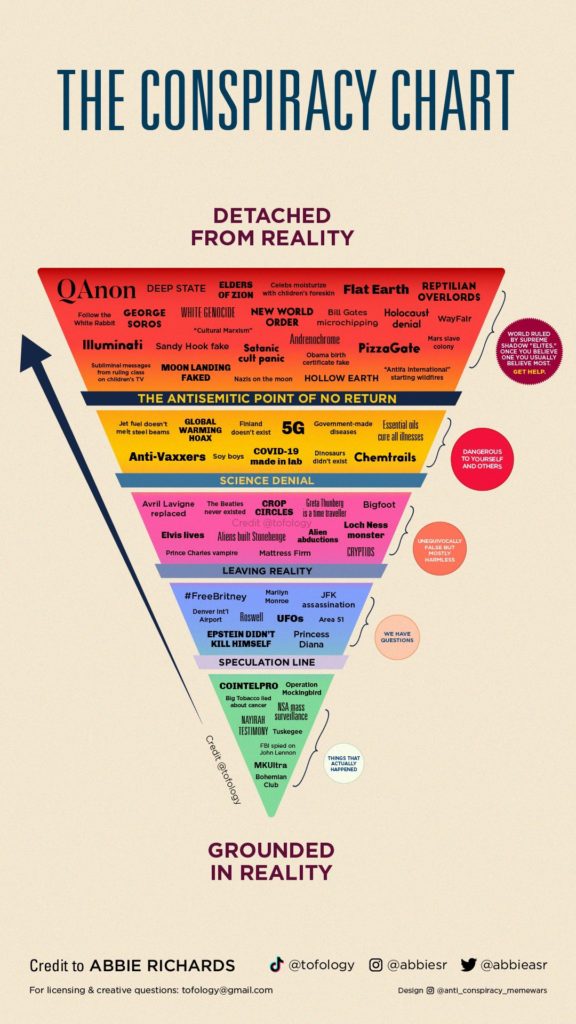I think of myself as a Skeptic. I capitalize that word, because it probably doesn’t mean what you think when I describe myself that way. Some may think it synonymous with cynic or freethinker, which creates this tautology where capital-S Skeptics feel the need to define the term. I think Tim Farley summed it up as well as anyone has: ““Skepticism is the intersection of science education and consumer protection.”
Skepticism is a less a philosophy than a thought process, but it is also a culture and some go so far as to call it a “movement”. Skepticism has its media, it has celebrities, it has conferences, and it had its messiah. It even has, as all burgeoning great movements must, a Great Schism. As traditional Skepticism was organized mostly by white guys, the schism was inevitably about misogyny and representation in the movement, and for the record, I’m on Rebecca’s side on this one.
Since I seem to be going on about definitions, there is no such thing as a “Climate Change Skeptic” or a “Holocaust Skeptic”. One can apply Skeptical principles to determine whether (for example) a carbon tax is an effective policy tool to address consumer-driven emissions of greenhouse gasses, sure. But calling into question whether anthropogenic climate change driven by the burning of fossil fuels is happening, and whether it has the potential for catastrophic impacts on global ecosystems that support human society is not “skepticism”, it is denial. Until proven otherwise, and it hasn’t been, it is the scientific consensus. Though seeking to challenge the scientific consensus at every opportunity is the heart of skepticism, understanding the roots of that consensus until a valid challenge is found to it is the blood running through that heart.
I have been around Skepticism for a long time now, listening to the Skeptics Guide in pre-Rebecca days, I am old enough to remember before Brian Dunning was a convict. I was probably (probably – because memory is fallible) was guided by my Thesis supervisor back when I was an undergrad. But I don’t think back then we could have imagined the role that conspiracy theories and anti-science thought could be playing in larger society – especially American society – now. Well, Carl knew, but he was always a few decades ahead of us.
I’m not sure if it is me, or if it is Joe Rogan, but I feel we are seeing an overall media and politics shift away from the principles of scientific skepticism, and towards faith-based and conspiracy-based cynicism about the world. It would be easy (and lazy) to blame social media, but then Twitter brought this into my life:

This chart is a classification system of conspiracy put together by social media Phenom and alternative golf commentator Abbie Richards (@abbieasr), and I think it is a valuable tool for talking about conspiracy, fanciful though, skepticism, and answering the hardest question of all: “What’s the harm?”
I do have some quibbles. UFOs are probably in the right spot, as there are a variety of poorly explained visual phenomenon in the atmosphere, but when one links this to extraterrestrial life, it moves up a category to leaving reality. There may actually be more thinking in here than I read (as Abbie herself adds context in her on-point and hilarious way in her Tik Tok videos), so I’m happy to hear and learn more.
Aside from laughing and enjoying taking a dig here, I think a powerful way to use a tool like this is to keep it in mind when having those slightly-uncomfortable conversations Skeptics are always having. To avoid going off on a Storm-like Mincinian tirade whenever someone uses the term “sheeple” in a conversation, you can instead think about where the thing you just heard fits in the spectrum. Is it worth asking for more details about this idea that is new or strange to you? Go a step up or down the spectrum, see where the common ground is.
So Abbie’s great diagram entered my world when I’ve been thinking a lot about Skepticism. It may be because we just lost James Randi, who really was the spiritual leader of a movement, if there is a movement, and we accept that “spirit” is a collective drive towards something as opposed to a supernatural force.
Or maybe the fact-free US election may be part of it. It’s not just that the discussion down south isn’t around substantive things, it’s that the very idea that facts exists, that there is an objective reality that is somehow verifiable, seems to have fallen by the wayside for a large number of people. In its on way, our own BC election was almost completely bereft of policy conversation, instead discussion of who do you “like”, who do you “trust”, and who is “connecting” with whatever “voter demographic.” So we end up with very popular, but completely nonsensical, ideas like fixing traffic by removing road tolls and selling hydrocarbon fuels as the key to Climate Action.
So, as someone who was almost certainly not Carl Sagan once said, ““Keep an open mind, but not so open that your brains fall out”